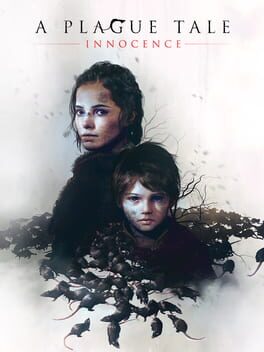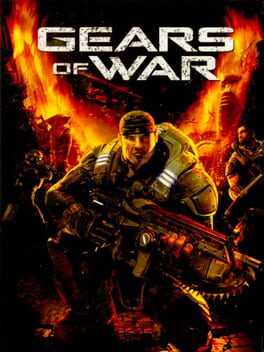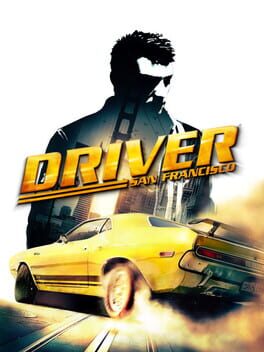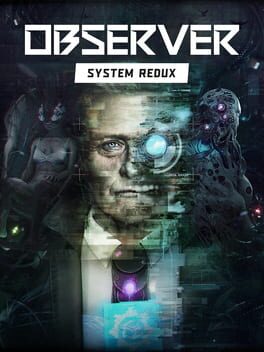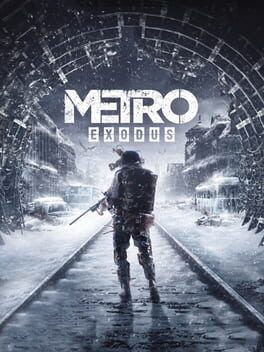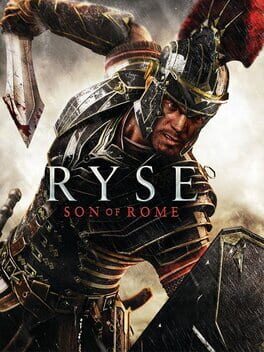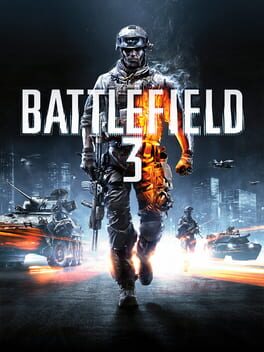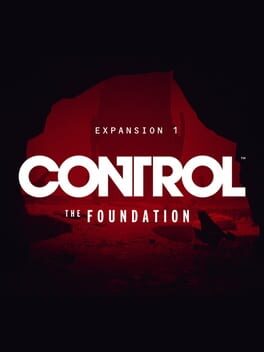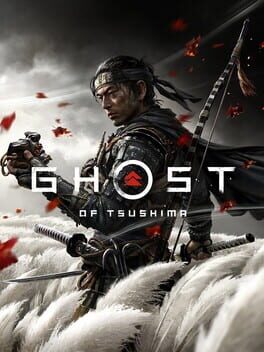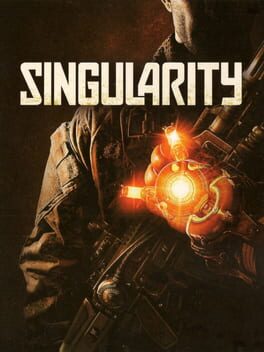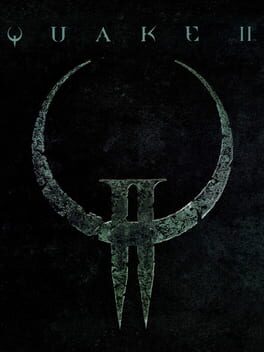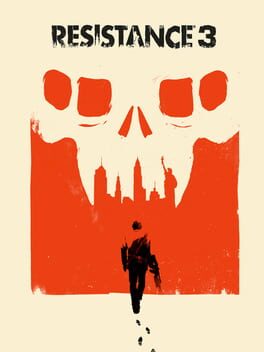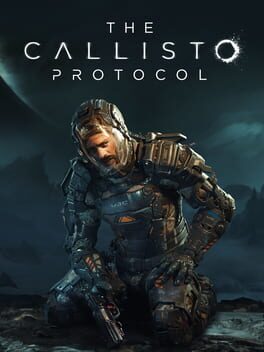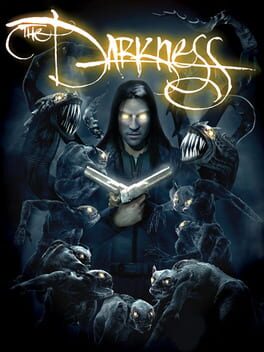zachmaycry
i often wonder where the AA/AAA games about motherhood are. and while technically this is a game about siblings, the way both Amicia's brother, Hugo, and also occasionally young budding alchemist, Lucas, huddle around her during certain sections where she has to illuminate a path through a plague of rats with a torch felt really maternal to me. it's also really rare for a game with a female protagonist to be so devoid of paternal/male figures too. i think that's what makes playing feel so fresh to me (even if it's not the freshest concept outside of games).
i really fell for this game's emotional tricks. the way it throws you into a bleak, terrifying world and then - like a flower blooming in the mud, blood and shit of a corpse-ridden battlefield - gives way to these really relieving moments of young teen characters bonding as they clutch onto each other (figuratively and literally) through the hell of it all. i think the game really nails those little quiet moments between stealthing passed inquisition guards and piles of swarming carnivorous rats, there's often a real personality to them (sometimes they offer levity, sometimes, as wit Melie, you can feel a genuine tension that exists beyond merely being your new BFF).
odd note: but i appreciate that i didn't have to collect any journals (i don't know why that stood out to me). but the "environment storytelling" is mostly the actual environment, a few npcs maybe, but there's like no like walls of text or little notes left lying around. made the game feel more in the moment, more urgent and the world by extension less artificially constructed (even if by the end what it's doing with the waves of rats is some insane out of this world shit... game kind of goes too far there i think but oh well).
also appreciate that murder in this game - while painted as a necessary evil via lines like "there was no other way" - isn't completely written off as just another wanton act of regular video game violence. the first two men you kill feels genuinely harrowing. likewise there are moments where you have a "choice" to kill/let someone die and while there's no morality system characters may remark upon it and in those moments you can feel Amicia grappling with her actions. it made me wish the game put more thought into non-violent combat and scaled back the amount of encounters where you 100% have to brain a guard with a rock/sic rats on them (and by the end the game feels like it just said fuck it, kill everyone). a missed opportunity but possibly because of how considered it felt at other times.
i really fell for this game's emotional tricks. the way it throws you into a bleak, terrifying world and then - like a flower blooming in the mud, blood and shit of a corpse-ridden battlefield - gives way to these really relieving moments of young teen characters bonding as they clutch onto each other (figuratively and literally) through the hell of it all. i think the game really nails those little quiet moments between stealthing passed inquisition guards and piles of swarming carnivorous rats, there's often a real personality to them (sometimes they offer levity, sometimes, as wit Melie, you can feel a genuine tension that exists beyond merely being your new BFF).
odd note: but i appreciate that i didn't have to collect any journals (i don't know why that stood out to me). but the "environment storytelling" is mostly the actual environment, a few npcs maybe, but there's like no like walls of text or little notes left lying around. made the game feel more in the moment, more urgent and the world by extension less artificially constructed (even if by the end what it's doing with the waves of rats is some insane out of this world shit... game kind of goes too far there i think but oh well).
also appreciate that murder in this game - while painted as a necessary evil via lines like "there was no other way" - isn't completely written off as just another wanton act of regular video game violence. the first two men you kill feels genuinely harrowing. likewise there are moments where you have a "choice" to kill/let someone die and while there's no morality system characters may remark upon it and in those moments you can feel Amicia grappling with her actions. it made me wish the game put more thought into non-violent combat and scaled back the amount of encounters where you 100% have to brain a guard with a rock/sic rats on them (and by the end the game feels like it just said fuck it, kill everyone). a missed opportunity but possibly because of how considered it felt at other times.
2006
despite its central premise being very inspired by Life on Mars, so much of Driver: San Francisco feels like the pinnacle of racing game stories. or just car games in general. the original Driver was one of the first games I played. I was one of the thousands who never made it out of the opening garage tutorial. I've always had a rooting interest in this series, even if Driver 3 and Parallel Lines slipped me by and I wrote this off for years as the final nail in the coffin.
turns out I was incredibly wrong. at worst, it fulfills the promise the original Driver gave me - a fantastic, free-flowing open-world racing game with impeccable real world detail, from the layout of the SF streets to the use of many notable real life cars, as well a deep love for replicating the vibe of late 60s and 70s car chase movies.
the story is both insanely stupid but it's told in one of the most ingenious ways. it holds up as a video game story almost better than any game I can remember. the tone is perfect. the little snippets of dialogue throughout are all nice.
where this shines though is the creativity on display. not even with the shift mechanic that's almost flawless, but the concepts for events are all so good. riding under a semi-trailer to defuse a bomb like you're in a Fast & Furious movie? gold. the goddamn level where your POV is from the driver's seat of the car chasing you? that was beautiful and inspired. the ways in which the game reminds you you're in a game by reminding you your character is in a coma? really great. following an ambulance around to keep your heartbeat down while you're in cardiac arrest is some really compelling that not only other racing games never aspire to but few contemporary games manage to pull off.
one of the last real ps3 gems.
turns out I was incredibly wrong. at worst, it fulfills the promise the original Driver gave me - a fantastic, free-flowing open-world racing game with impeccable real world detail, from the layout of the SF streets to the use of many notable real life cars, as well a deep love for replicating the vibe of late 60s and 70s car chase movies.
the story is both insanely stupid but it's told in one of the most ingenious ways. it holds up as a video game story almost better than any game I can remember. the tone is perfect. the little snippets of dialogue throughout are all nice.
where this shines though is the creativity on display. not even with the shift mechanic that's almost flawless, but the concepts for events are all so good. riding under a semi-trailer to defuse a bomb like you're in a Fast & Furious movie? gold. the goddamn level where your POV is from the driver's seat of the car chasing you? that was beautiful and inspired. the ways in which the game reminds you you're in a game by reminding you your character is in a coma? really great. following an ambulance around to keep your heartbeat down while you're in cardiac arrest is some really compelling that not only other racing games never aspire to but few contemporary games manage to pull off.
one of the last real ps3 gems.
Narratively it feels like a bit of waste and like that meme of the picture of the horse that begins super detailed and evolves into a stick figure. The detective side of the game isn't very fleshed out. And then the ending throws all these big cyberpunk themes at you and gives you no real time to grapple with them. It's like someone tapped over last 90 minutes of Blade Runner to record the last 30 minutes of Ghost in the Shell.
I am not going to complain though. Visually striking and I dig that it's confident enough in itself to throw so much vivid imagery at you at every turn. Having just played Thirty Flights of Loving, this feels like the ideal AA or AAA version of that. Maybe it's ultimately too long to really hold up. But the ideal AA game, imo, should be this - a super polished and impressive looking 4-6 hour game full of sick images.
I am not going to complain though. Visually striking and I dig that it's confident enough in itself to throw so much vivid imagery at you at every turn. Having just played Thirty Flights of Loving, this feels like the ideal AA or AAA version of that. Maybe it's ultimately too long to really hold up. But the ideal AA game, imo, should be this - a super polished and impressive looking 4-6 hour game full of sick images.
2019
red dead redemption 2: russian DLC
this may be more of a semi open world immersive sim with heavy stealth elements. but it's telling a lot of the same story as RDR2 and in very similiar ways.
both feature trains, coughing fits, and some fine natural day/night lighting. both are very slow, heavy, tactile games (in very different ways, RDR2 is more realistic but metro exodus is the game with an in-game map and a first-person camera that shows off some of gaming's most extremely textured gloves).
both are about desperate people suffering a bleak existence and attempting to survive harsh environments while clinging to dreams of a brighter future.
both take serious time out and go out of their way to explore their side characters in more depth than most games typically offer their main characters.
the best moments in both games are the quiet ones. like just the pleasure of exploring the world and taking in the atmosphere. or just listening to conversations, that either include you or don't. i think in that way both games aren't just about companionship but the importance of empathy.
both are about the consequences of your actions too. although in red dead 2 those actions are scripted. the game is third-person. you play a scripted character with a preset fate. metro exodus on the other hand, while featuring a scripted character, is in first person and has how play as someone who only ever speaks during loading screens when they're writing in their diary (another connection to rdr2 re: the diary). it ultimately tests your character's morality through your actions as a player. maybe those actions too subtle. maybe they're too dense to grasp. all i know this game left me in the same space as red dead 2 but i had to face that the bitter taste in my mouth was not the author's doing but my own, and when i realised i had to reap what i sowed, all i could say was "damn, you got me".
cool game. glad i played it. and even on a launch ps4 this thing sparkled. will play the DLC eventually.
this may be more of a semi open world immersive sim with heavy stealth elements. but it's telling a lot of the same story as RDR2 and in very similiar ways.
both feature trains, coughing fits, and some fine natural day/night lighting. both are very slow, heavy, tactile games (in very different ways, RDR2 is more realistic but metro exodus is the game with an in-game map and a first-person camera that shows off some of gaming's most extremely textured gloves).
both are about desperate people suffering a bleak existence and attempting to survive harsh environments while clinging to dreams of a brighter future.
both take serious time out and go out of their way to explore their side characters in more depth than most games typically offer their main characters.
the best moments in both games are the quiet ones. like just the pleasure of exploring the world and taking in the atmosphere. or just listening to conversations, that either include you or don't. i think in that way both games aren't just about companionship but the importance of empathy.
both are about the consequences of your actions too. although in red dead 2 those actions are scripted. the game is third-person. you play a scripted character with a preset fate. metro exodus on the other hand, while featuring a scripted character, is in first person and has how play as someone who only ever speaks during loading screens when they're writing in their diary (another connection to rdr2 re: the diary). it ultimately tests your character's morality through your actions as a player. maybe those actions too subtle. maybe they're too dense to grasp. all i know this game left me in the same space as red dead 2 but i had to face that the bitter taste in my mouth was not the author's doing but my own, and when i realised i had to reap what i sowed, all i could say was "damn, you got me".
cool game. glad i played it. and even on a launch ps4 this thing sparkled. will play the DLC eventually.
2013
Repetitive, sure, but then, what game isn't. And what Ryse Son of Rome lacks in variety it makes up for by being thirft and no nonsense. It is personal taste thing that I happen to adore linear on the rails action games. I like games that can be opened and closed in one sitting like a book or a film and don't jerk you around too much with side activities or cruft.
How a game goes about its repetitive actions is important too. The core loop is bloodthirsty and exciting and I never tire of seeing the same five execution animations especially the one where you cut a man's arm off. The game also has a one shot camera thing going on quietly between cutscenes that, perhaps highlighted by the camera movements during executions, I thought was neat and made feel like the game is on par with games like Hellblade and God of War.
I also adore the setting. More games set in Rome, thanks. More historical settings in general. So many games are made by people who want to escape to medieval or sci fi fantasy settings but I'd like to see more games explore Earth and human history. That shouldn't exclusively be Assassin's Creed's domain.
Ryse Son of Rome's biggest downfall though is that it doesn't do much with the setting. It could be Rome or Spartacus instead it's a big bowl of nothing. It sort becomes Michael Bay's Rome at times, giving you a glimpse at the the proposed Call of Duty Ancient Rome game might have been. But it's just very charmless and lacking in character. I played 80% of it one sitting and less than a day later I can't remember what the inciting incident for Marius' betrayal is. It's not necessarily a poorly written game, more underwritten to the point where the writing feels nonexistent.
I will say the lack of narrative ambition does, in a Doom, id Software kind of way, reinforce how nice and lean the gameplay is (even if the level design is more shiny and nice to gaze at than complex and interesting to play through). I will add the game finishes on a sequence that I think is better on the rails than it would be otherwise. You really feel the crushing weight of the game coming to an end with a very weary QTE sequence.
It's a short, nasty dope as hell looking AAA game. It's not extraordinary but it should have been the template for story driven AAA games for the last console generation instead of something derided as a tech demo and forgotten.
How a game goes about its repetitive actions is important too. The core loop is bloodthirsty and exciting and I never tire of seeing the same five execution animations especially the one where you cut a man's arm off. The game also has a one shot camera thing going on quietly between cutscenes that, perhaps highlighted by the camera movements during executions, I thought was neat and made feel like the game is on par with games like Hellblade and God of War.
I also adore the setting. More games set in Rome, thanks. More historical settings in general. So many games are made by people who want to escape to medieval or sci fi fantasy settings but I'd like to see more games explore Earth and human history. That shouldn't exclusively be Assassin's Creed's domain.
Ryse Son of Rome's biggest downfall though is that it doesn't do much with the setting. It could be Rome or Spartacus instead it's a big bowl of nothing. It sort becomes Michael Bay's Rome at times, giving you a glimpse at the the proposed Call of Duty Ancient Rome game might have been. But it's just very charmless and lacking in character. I played 80% of it one sitting and less than a day later I can't remember what the inciting incident for Marius' betrayal is. It's not necessarily a poorly written game, more underwritten to the point where the writing feels nonexistent.
I will say the lack of narrative ambition does, in a Doom, id Software kind of way, reinforce how nice and lean the gameplay is (even if the level design is more shiny and nice to gaze at than complex and interesting to play through). I will add the game finishes on a sequence that I think is better on the rails than it would be otherwise. You really feel the crushing weight of the game coming to an end with a very weary QTE sequence.
It's a short, nasty dope as hell looking AAA game. It's not extraordinary but it should have been the template for story driven AAA games for the last console generation instead of something derided as a tech demo and forgotten.
2011
2020
Basically you spend 35 hours becoming 13th Century Batman in what might be the PS4's most striking open world. Ghost of Tsushima is not a game that holds up under scrutiny; its beauty is skin deep, its textures beneath the vibrant foliage are not as richly detailed as they may appear from a distance. When I am not playing this game, my brain is scrambling for ways to dismiss it, either for its rote mission structure, its paper thin characters, its sophomoric morality or its less than stellar attempts at appearing cinematic. Yet, when I am playing it, it's as comfortable as old pair of gloves. Combat, without the hassle of a lock-on, is swift; riding and movement is equal parts weighty and frisky (it means the game feels immersive without any clunkiness); and, yeah, I am easily dazzled by the colours, from the leafs and landscapes to the various outfits, headbands and sword kits you can equip. I always felt really in the zone coming home, chucking on some colourful duds, and riding around, wind whipping my cape, fully immersed in a smartly designed, satisfyingly diagetic world. This game will live on as "that samurai game that replaced the mini map and HUD with wind and birds", which is fitting. The game is about as nice that sounds. "Yeah, I remember that. It was a fun game". About as much as you can ask for.
2010
i thought with the soviet backdrop on top of the time travel gimmick that this would be much more politically, historically and thematically interesting. but it's threadbare; it's a nothing game. it has the makeup of a modern warfare/killzone shooter clone with some half-life type attempt at physics but the shooting lacks pizazz and the puzzles feel half-assed. the time travel stuff also feels years ahead of its time. i don't know what kind of game they wanted to make original but i am picturing a design document that looks like a pristine construction while the finished product looks like homer simpson's grill with the umbrella sticking out of it.
2023
The technological leap from Quake to II in the span of a year seems evident even 26 years later. But gone is the unique neo-industrial Egyptian inspired atmosphere and in its place a generic sci-fi goo of mostly browns and dumb looking enemies.
Still. Peak shooter game design. Just the perfect blend of guided exploration, puzzles and shooty parts. A Quake in the vein of nuDoom would be hella sick (so long as they don't go all Eternal with it). Games theoretically never got better than this really.
Still. Peak shooter game design. Just the perfect blend of guided exploration, puzzles and shooty parts. A Quake in the vein of nuDoom would be hella sick (so long as they don't go all Eternal with it). Games theoretically never got better than this really.
2011
I thought this one was an "underrated gem". it's one i've been meaning to play for like 10 years. i skipped Fall of Man and Resistance 2 just to get to the one that supposedly had a story and maybe some crisper post-Modern Warfare gunplay.
such a weird game tho. it's like if neil druckmann made Bulletstorm. or somebody interspliced paragraphs from The Road into one of the Halo novels (or the Halo games, I guess, fucking plays as monotonously as the Library from Halo 1 but with the aesthetic of like every boring late-00s/early-10s brown FPS).
just... really boring. i guess i liked the dust bowl atmosphere of the early levels which isn't something a lot of games do. but like when you're just shooting mindless aliens creatures, it kind of seems like a huge waste of time.
such a weird game tho. it's like if neil druckmann made Bulletstorm. or somebody interspliced paragraphs from The Road into one of the Halo novels (or the Halo games, I guess, fucking plays as monotonously as the Library from Halo 1 but with the aesthetic of like every boring late-00s/early-10s brown FPS).
just... really boring. i guess i liked the dust bowl atmosphere of the early levels which isn't something a lot of games do. but like when you're just shooting mindless aliens creatures, it kind of seems like a huge waste of time.
the Alien Covenant to Dead Space's Alien. everything is more modern and sleek, the rusted over hard-laboured charm of the original has been sanded smooth. there are very edges to this game. everything about the first Dead Space made you feel like you'd a tetanus shot just playing it with a controller.
conversely, The Callisto Protocol feels like a smooth-edged, highly developed completely sterile tech demo. You will spend more time shimmying through loading screens disguised as nooks and vents, and QTE'ing your way through more tightly scripted, if crisply designed linear corridors. this uncharted level of game design is catnip to me but even I grew bored of this and it's only about an 8 hour game.
creative director Glen Schofield clearly has one idea: Resident Evil 4 but what if in a space mine. and to his credit, it's a nice idea. but it's kind of laughable to play through all the exact the same shit again. same basic controls, enemies, settings, and weapons - except this time there's an added emphasis on brutal melee combat that leaves your guy covered in blood. again, nice. but leaves you bored after a while.
this started as a PUBG tie-in of sorts. i remember playing Remedy's CrossfireX tie-in shooter campaign, and exactly as was the case with that game, this game's script has the distinct feel of having been knocked out in 3 hours during a toilet break. feels like one idea stretched too far, which is in line with the rest of the game, tbf.
still didn't hate it. nice gore.
conversely, The Callisto Protocol feels like a smooth-edged, highly developed completely sterile tech demo. You will spend more time shimmying through loading screens disguised as nooks and vents, and QTE'ing your way through more tightly scripted, if crisply designed linear corridors. this uncharted level of game design is catnip to me but even I grew bored of this and it's only about an 8 hour game.
creative director Glen Schofield clearly has one idea: Resident Evil 4 but what if in a space mine. and to his credit, it's a nice idea. but it's kind of laughable to play through all the exact the same shit again. same basic controls, enemies, settings, and weapons - except this time there's an added emphasis on brutal melee combat that leaves your guy covered in blood. again, nice. but leaves you bored after a while.
this started as a PUBG tie-in of sorts. i remember playing Remedy's CrossfireX tie-in shooter campaign, and exactly as was the case with that game, this game's script has the distinct feel of having been knocked out in 3 hours during a toilet break. feels like one idea stretched too far, which is in line with the rest of the game, tbf.
still didn't hate it. nice gore.
2007
there's some neat immersive sim elements. i like the npc interactions and how they have names. i like the little hub worlds. i like the analog nature of navigating story via beeper messages and pay phones. the overall look and feel of this particular kind graffiti-filled, crime-laden realistic festering new york hellhole is quite rich in its narrow pov. i like the interstitial literal underworld WWII sections. they are bland if striking.
i absolutely despise the fucking story. dumb ass comic book hoodlum crap. all the themes walking with the darkness i couldn't care less. the monster is stupid. all the characters suck bar one, and gee i am shocked at what they did with them. i hate the gameplay too. this should FEAR/Max Payne bullet time dual-wielding mayhem and instead it's some of the most boring shit i've ever played. there's no cover. the extra powers are useless. the signposting sucks too. just an incredibly stupid and frustrating game to play. fuck this shit.
i absolutely despise the fucking story. dumb ass comic book hoodlum crap. all the themes walking with the darkness i couldn't care less. the monster is stupid. all the characters suck bar one, and gee i am shocked at what they did with them. i hate the gameplay too. this should FEAR/Max Payne bullet time dual-wielding mayhem and instead it's some of the most boring shit i've ever played. there's no cover. the extra powers are useless. the signposting sucks too. just an incredibly stupid and frustrating game to play. fuck this shit.
I love it formally and mechanically. It's like Dear Esther meets God of War, which is pretty cool. It's all light combat, environmental puzzles and straight up story (almost entirely voiceover). In a lot of ways it's my ideal game set up.
It's weird though because what it reminds me most of is the movie, The Revenant, which I hated. A lot of long takes. A lot of staring down the lens. A lot of mud and blood and shit. A lot of "harrowing anguish". And I don't know what it means for me that when a game does something a movie I hated did, I actually dig it (The Last of Us 1 and 2 kind of similiar). My only guess is because games are steeped in certain (very teen-friendly) aesthetics and tropes that when something kind of breaks through those barriers I get carried away.
Like this is sort of the inverse of God of War. God of War presents on the face a very literal fantasy world, where mythology is vibrant and alive. But all the gore and violence is still cartoonish. None of the characters feel like real people. Even in 2018's God of War, it's basically just an R-rated MCU movie. And the stakes... aren't there because it feels so fake.
Whereas Hellblade's reality is our reality. It's all mud and sticks and fire and blood and burnt, gored bodies strewn up all over the world like Christmas decorations. It's more natural and rustic. And the Norse mythology that runs through the game is filtered through dreamscapes/psychosis; it's a formalist unreality that God of War only kind of gets into at the end of III. And Senua is not Kratos. She's vulnerable and alone, and (initially (sigh at an upcoming sequel)) not a console mascot whose fate is kind of predictable. She's more human and relatable.
Where this game falls down for me is... well I don't know if it falls down but what I don't like about it is how it uses mental illness/psychosis as a device to obfuscate backstory. And it doesn't only use it for that. But I couldn't help but feel this game would be better if it were blunter. If Senua's backstory wasn't a puzzle to be revealed over time. If Senua's mental health didn't also skirt into "is she crazy or a genuine soothsayer". Part of this game feels designed to make you google "what was REALLY happening" afterwards.
I don't know, despite -- or maybe because of -- the immediate and showy mental health advisor credit that opens the game, it seems like "mental health" is something they stuck on as a gimmick, like someone's pitch was "what if you play as a crazy person" and it sprang from there. And I don't know if that's the case a all but it's the impression they leave by opening the game that way. And I don't know how much research they did and how much care they put in, but the portrayal was so extra and overwrought and lacking in subtlety it doesn't wind up feeling all that delicate. That credits winds up feeling like insurance.
Despite all that I liked how hopeful the game kind of felt by the end. How much the game recognised your mental health is something that isn't conquered but how equilibrium is learning to live through it and with it.
Part of me wishes this could have just been as scaled down narratively/thematically as it was mechanically. Been more Valhalla Rising, less The Revenant.
It's weird though because what it reminds me most of is the movie, The Revenant, which I hated. A lot of long takes. A lot of staring down the lens. A lot of mud and blood and shit. A lot of "harrowing anguish". And I don't know what it means for me that when a game does something a movie I hated did, I actually dig it (The Last of Us 1 and 2 kind of similiar). My only guess is because games are steeped in certain (very teen-friendly) aesthetics and tropes that when something kind of breaks through those barriers I get carried away.
Like this is sort of the inverse of God of War. God of War presents on the face a very literal fantasy world, where mythology is vibrant and alive. But all the gore and violence is still cartoonish. None of the characters feel like real people. Even in 2018's God of War, it's basically just an R-rated MCU movie. And the stakes... aren't there because it feels so fake.
Whereas Hellblade's reality is our reality. It's all mud and sticks and fire and blood and burnt, gored bodies strewn up all over the world like Christmas decorations. It's more natural and rustic. And the Norse mythology that runs through the game is filtered through dreamscapes/psychosis; it's a formalist unreality that God of War only kind of gets into at the end of III. And Senua is not Kratos. She's vulnerable and alone, and (initially (sigh at an upcoming sequel)) not a console mascot whose fate is kind of predictable. She's more human and relatable.
Where this game falls down for me is... well I don't know if it falls down but what I don't like about it is how it uses mental illness/psychosis as a device to obfuscate backstory. And it doesn't only use it for that. But I couldn't help but feel this game would be better if it were blunter. If Senua's backstory wasn't a puzzle to be revealed over time. If Senua's mental health didn't also skirt into "is she crazy or a genuine soothsayer". Part of this game feels designed to make you google "what was REALLY happening" afterwards.
I don't know, despite -- or maybe because of -- the immediate and showy mental health advisor credit that opens the game, it seems like "mental health" is something they stuck on as a gimmick, like someone's pitch was "what if you play as a crazy person" and it sprang from there. And I don't know if that's the case a all but it's the impression they leave by opening the game that way. And I don't know how much research they did and how much care they put in, but the portrayal was so extra and overwrought and lacking in subtlety it doesn't wind up feeling all that delicate. That credits winds up feeling like insurance.
Despite all that I liked how hopeful the game kind of felt by the end. How much the game recognised your mental health is something that isn't conquered but how equilibrium is learning to live through it and with it.
Part of me wishes this could have just been as scaled down narratively/thematically as it was mechanically. Been more Valhalla Rising, less The Revenant.
